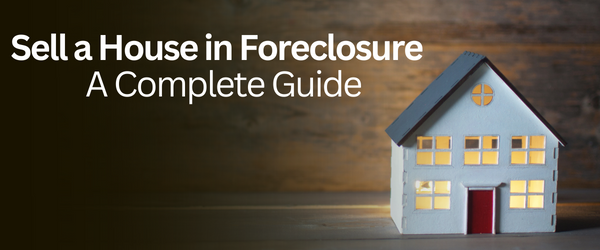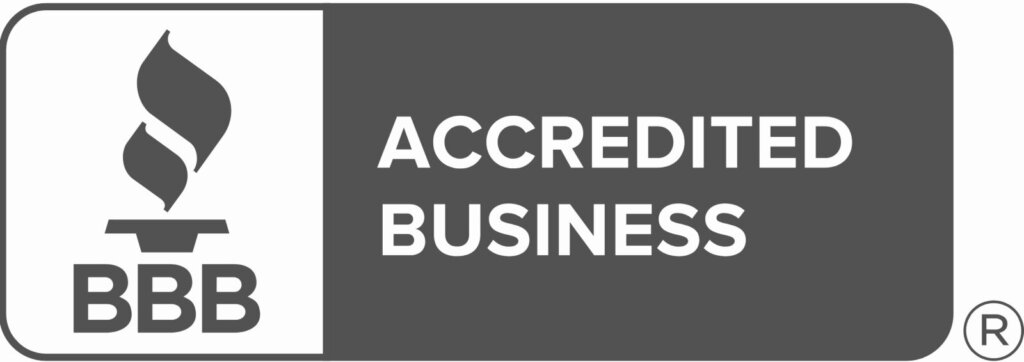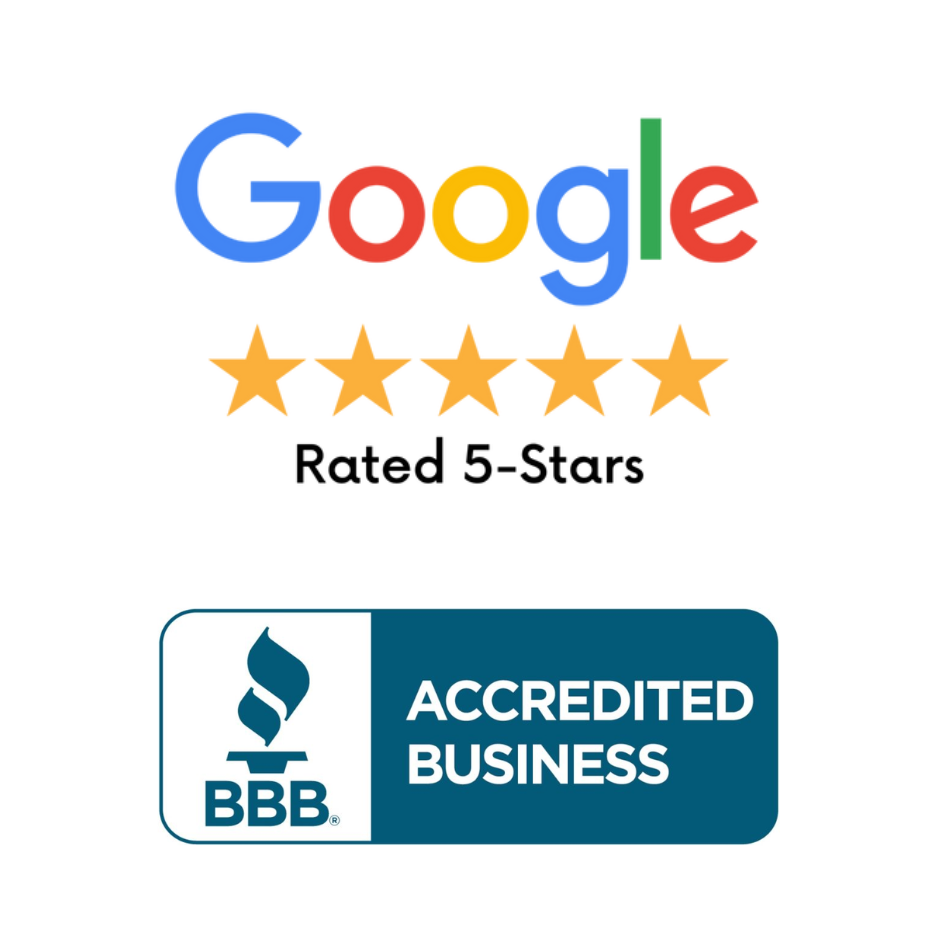Are you looking to stop foreclosure by selling a house?
If you’re considering selling a house before foreclosure in Kentucky to keep from losing your house and ruining your credit we can help. Request a cash offer below to get started.

Being faced with the possibility of losing your home can be scary. No one wants to lose the roof over their head. Luckily, there are steps you can take to prevent the foreclosure process that can hopefully help you turn your situation around before it is too late. In addition, even if you are already behind on mortgage payments, there are still options available to you to stop damage to your finances and credit score.
If you’re a Kentucky resident and you think you could be at risk of facing foreclosure and losing your house, read on for important information about what you can do right now. Or, call us at (502) 849-5950 if you have questions or are interested to learn how to sell a house when facing foreclosure.
Sell a House in Foreclosure Topics
- The foreclosure definition
- Short sales vs foreclosure, what is the difference?
- What is the foreclosure process in Kentucky?
- When does foreclosure start?
- How long does foreclosure take?
- What are the foreclosure laws in Kentucky?
- How long does foreclosure stay on your credit report?
- Ways to stop foreclosure
- Can I sell my house if I’m behind on my mortgage?
- Can I sell a foreclosure house?
- How to sell a foreclosed house: Selling vs. Foreclosure
The foreclosure definition
According to the Merriam-Webster Dictionary, the definition of foreclosure is “a legal proceeding that bars or extinguishes a mortgagor’s right of redeeming a mortgaged estate”.
If you have missed mortgage payments, you may be at risk of foreclosure. When you get a mortgage, you make a promise to your mortgage lender to repay the cost of the house, plus interest. If you cannot fulfill your agreement to do so, your lender can foreclose on your house, repossess it and sell it to a new owner to recoup their losses. This can leave you without a house and with some serious damage to your credit score.
Short sale vs foreclosure, what is the difference?
If you’re researching foreclosure, you may have also heard the term “short sale” floating around. While these two terms are related, they are not the same thing, though they are sometimes confused. Foreclosure is the process of having your house repossessed and sold by your lender. A short sale, on the other hand, is an option some homeowners take to avoid having their house foreclosed upon.
A homeowner might have a short sale when they realize they can’t pay mortgage payments due to financial hardship and want to avoid defaulting on their loan, losing their house and taking the credit hit of having a foreclosure on their record. To avoid foreclosure, the homeowner can make a deal with their lender to sell the house themselves to a new owner typically for less than the property is worth.
After a short sale, the lender typically keeps all the profits of the sale but allows the former homeowner to walk away without any of the damage to their credit history that a foreclosure would have caused. The lender will either require that the former homeowner pay them the difference between what they owed on the house and the sale price or they may forgive the debt owed to them altogether.
Let’s break down the key differences:
Short Sale
- The homeowner starts the process voluntarily by receiving permission from the mortgage company to sell the house is under-water, below what is owed.
- The homeowner is still responsible to sell their property, but the lender is responsible for negotiation and approves or rejects offers.
- The house is sold below the cost of the mortgage balance and either forgives the difference or requires the original borrower to pay the balance.
Foreclosure
- The process starts when a homeowner has missed mortgage payments.
- In Kentucky, the process is typically managed through the court system where the mortgage company files a lawsuit giving the borrower time to pay.
- If the borrower can’t pay the court typically issues a judgement for the lender to take possession of the property. At that time it becomes a bank owned property and in most cases the lender will sell the property to cover their original investment.
What is the foreclosure process in Kentucky?
Before your house can be seized by your lender, you must first be at least 3 months behind on mortgage payments. Many Kentucky mortgage servicers are required to send you a notice that warns you your loan is in default. Your servicer may send you a notice of default after 30 days, though they cannot proceed with foreclosure until your loan is 120 days delinquent. If you do not take action to correct the default before 120 days and get current with mortgage payments, the formal foreclosure process can begin.
At this point, servicers will refer the loan to foreclosure counsel. A foreclosure attorney will file “first legal,” which is a complaint or a notice of default. Even after first legal is filed, borrowers can still apply for loss mitigation until the loan completes the process of judicial foreclosure.
Kentucky is a judicial foreclosure state, which means your lender will file a lawsuit with Kentucky’s judicial system. Under this lawsuit, you as the borrower will have a set amount of time to respond and pay back what you owe on the house. If you fail to respond the lender will request a default judgement from the court to rule in favor of the mortgage company. If the default judgement is granted the lender will be granted permission to seize your house and sell it. However if you respond, there’s some additional steps before they can legally foreclose on the house.
If you choose to respond and defend the lawsuit it will go through Kentucky’s litigation process. In most cases the lender will final a motion for a summary judgement which asks the court to rule on behalf of the lender immediately. The position of most lenders is the facts of the case are not in dispute which will be heard at a summary judgment hearing. This is the final hearing to determine if the lender is permitted to foreclose on the property. If the court rules in their favor and the homeowner cannot repay the amount owed on the mortgage, they will be issued a notice to quit letter that requires them to vacate the house within a certain time period.
The house will then move to a foreclosure sale at a commissioner’s auction, which is a public foreclosure auction to sell the deed to the property to the highest bidder.
When does foreclosure start?
According to federal law, the formal foreclosure process can begin if your loan is over 120 days delinquent (with a few exceptions), meaning you would typically be more than 3 months behind on mortgage payments before your lender could escalate.
During that time, in pre-foreclosure, the lender may assess late-fees for each month the loan is not paid in full. They may, but are not always required to, officially notify of the missed mortgage payments or offer assistance to prevent foreclosure.
How Long Does Foreclosure Take?
The foreclosure process can take anywhere from a few months to several years, depending on court proceedings. A few months is a standard timeline, with most states having similar processes for homeowners facing default.
How Long is the Foreclosure Process in Kentucky?
On average, it takes around 5 months to complete the foreclosure process in Kentucky, though this timeline could be both shortened or extended depending on the actions taken by the homeowner to either mitigate loss or contest the foreclosure.
What Are the Foreclosure Laws in KY?
Kentucky is a judicial foreclosure state, as mentioned previously, which means foreclosures are executed via the judicial system. If a homeowner defaults and doesn’t take loss mitigation options, their house can be seized and sold via commissioner’s auction. Once a new owner is found, under Kentucky law, the former owners typically have 10 days’ notice to vacate.
Thanks to a unique law in Kentucky, even after a house has been foreclosed upon and sold, the former homeowner still has a chance of getting it back. This “redemption law” states that if the property sells at auction for less than two-thirds of the appraised value, the original homeowner has one year to buy back the property at the price paid by the winning bidder plus 10 percent to retake possession of the house. If they can do so, they can technically retake the property, though this situation is rare.
If you’re looking for legal advice to understand the foreclosure and eviction laws in Kentucky we recommend speaking with a foreclosure attorney. The US Department of Justice maintains a list of free and low-cost legal service providers that can be found here.
How long does foreclosure stay on your credit report?
A foreclosure will stay on your credit report for 7 years and can cause significant damage to your credit score. According to Consumer Education Services Inc., foreclosure is likely to lower your credit score by more than 100 points. This can make it extremely difficult for you to get another mortgage again.
Ways to stop foreclosure
Luckily, foreclosure can be avoided. Whether you are trying to stop foreclosure on inherited property (learn more about selling an inherited property in my other blog post), an investment property or a primary residence, you have many options to stop foreclosure proceedings, as long as you start early. As soon as you recognize you will not be able to afford your mortgage payments, contact your servicer. Most lenders offer forms of foreclosure assistance and will be more than willing to help you find options like a loan modification. This is where a mortgage lender adjusts the terms of the loan to help the homeowner remain current.
Your lender may allow you to apply for forbearance, which could permit you to pause your mortgage payments for a period of time. They may also suggest you refinance to make your mortgage payments more manageable, as long as you aren’t already behind on your loan.
If you are truly out of options, it’s also possible to file for Chapter 13 bankruptcy to help repay your debts, including your mortgage. This will also have a very detrimental effect on your credit score, however, so it is best to avoid bankruptcy and foreclosure if at all possible.
Steps to Stop Foreclosure in Kentucky
- Pay Down Your Mortgage Balance & Fees: Paying off your loan balance and fees is a way to typically stop foreclosure immediately. It’s not always an option for those who find themselves behind on their mortgage payment to stop the foreclosure sale.
- Negotiate with the Lender: Mortgage companies typically offer resources, counseling or programs to help prevent foreclosure. They are unlikely to release you from the loan but they may be able to help you delay for a short time until you can pay, or refinance your loan that may reduce your monthly mortgage payment.
- ForeclosureAssistance from Kentucky Government Programs: Kentucky and the U.S. Department of Housing and Urban development offer a number of programs and resources to assist homeowners facing foreclosure. Just keep in mind that working with the government can be time-consuming and complicated.
- Kentucky Mortgage Assistance Guide – A guide to refinancing, avoiding foreclosure, and the mortgage servicing settlement
- HUD-approved housing counseling – local agencies that provide no-cost foreclosure avoidance counseling
- KY Homeownership Protection Center: Mortgage assistance for unemployed or underemployed Kentucky homeowners.
- Declare Bankruptcy: Let’s be clear, filing chapter 13 bankruptcy will temporarily stop the foreclosure process during the bankruptcy process. It will buy you some time but in most cases will not stop foreclosure permanently.
- Sell Your House Fast: Most homeowners think there’s only one way to sell a house and that process typically takes a lot of time and effort. There are more ways to sell a house the traditional way with a real estate agent especially in complicated situations like foreclosure. In fact, there are companies that specialize in buying houses directly from home owners fast, in as little as 7 days, with no fees or repairs.
Can I sell my house if I’m behind on my mortgage?
Yes! If you’re already behind on your mortgage, you can still sell it — your options will just look a bit different. You generally have two options when selling a home with a mortgage in default: selling the traditional way with a real estate agent or selling to an investor. Before you make this decision find out what the grace period is for paying the mortgage which you’ll find in the promissory note you signed from the closing. The promissory note also includes a lot of information you need to make an informed decision such as late-fees and accrued interest.
When you sell the traditional way with a real estate agent you should plan on at-least 2-3 months to sell your house which is the average time to sell according to Zillow. As mentioned previously, you have 120 days before the foreclosure process officially starts so time is of the essence. If you wait until the foreclosure process starts you likely will run out of time before you can sell the traditional way.
Your other option is to sell to a cash buyer. If you can find someone willing to purchase your house with enough cash to pay back what you owe before the house becomes lender or bank owned and is sold at auction, you can also escape foreclosure without taking the credit hit. While both of these options will leave you without a house, they at least protect you from taking on additional financial and credit damage.
Can I sell a foreclosure house?
Yes! You can sell a house or real estate that is behind on mortgage payment or in the foreclosure process. The lender will require the loan to be paid off at the time of sale which can be covered by the sales price. And in some cases the sales price may be more than what you owe on the property allowing you to walk away from the situation with cash in your pocket and without a foreclosure on your credit report.
The foreclosure process is complicated and in the later stages can move very quickly. We recommend if you’re thinking about ways to sell your house and behind your mortgage payments you work with an experienced real estate investor or cash buyer that can close quickly to avoid foreclosure.
How To Sell a Foreclosed House: Selling vs. Foreclosure
If you are concerned about finding a way to repay your mortgage without defaulting and are unsure if the above options will work for you, you may wonder if you can just sell your house before you fall behind. Let’s discuss what happens if you opt to attempt to sell your house to get out of financial difficulty.
How long does it take to sell a foreclosed house?
If you’re trying to sell the house during the foreclosure process, you’re working against the clock. If you sell the traditional way you could expect that process to take 2-3 months from listing to closing which is time you likely don’t have. Selling direct to an experienced real estate investor can shorten the process to sell your house considerably. Many sales close within a couple weeks and in some situations less than a week.
The Bottom Line
The prospect of losing your house to foreclosure can be scary, but luckily, you have many options to prevent foreclosure from happening. If you’re a Kentucky homeowner and you are looking to sell your house for cash to avoid foreclosure, contact us for a fair all cash offer today.
At We Buy 502 we specialize in helping KY homeowners sell their house fast. In fact, most of the houses we buy are from homeowners facing foreclosure. Give us a call anytime at (502) 849-5950 or contact us here and we’ll get back to you right away.
Experienced Kentucky House Buyers | We Buy 502
Hi, I’m Nyx Sherwin owner of We Buy 502. We’re a small, family-owned business located in Louisville, KY and we’ve also called Lexington and Bowling Green home.
We know selling a property can be a long and tiresome process. From repairs, to showings, negotiations and the waiting game to close. We believe there’s a better way to sell real estate that most don’t consider.
Our process to buy your property is straightforward and simple.


Nyx Sherwin, We Buy 502
Hi, I’m Nyx Sherwin owner of We Buy 502. For the last 20 years I’ve called Kentucky home. My wife and I met in Bowling Green, KY at Western Kentucky University. Our youngest daughter was born in Lexington, KY and now we call Louisville, KY home.
In our years of real estate experience we’ve learned selling a property in KY can be a long and tiresome process. From repairs, to showings, negotiations and the waiting game to close.
We believe there’s a better way to sell real estate that most don’t consider. We buy houses, rental property and land that most wouldn’t consider regardless of condition or situation.


